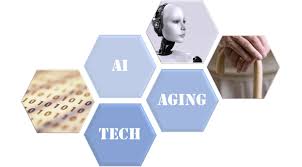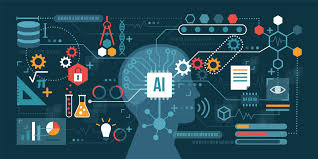Nuance Audio is a new option for people who resist traditional aids, from the company that makes Ray-Bans and operates LensCrafters.
Seekers of Meaning Podcast Posted Online March 7, 2025
What's Next Longevity Deal Talk Episode 32, January, 2025
Presentation: What's Next Longevity Venture Summit, June, 2025
WAWABILITY 2025, Washington DC, July, 2025

 New report published -
New report published -  Wondering if there's any news about AI? Just from yesterday,
Wondering if there's any news about AI? Just from yesterday,  think about AI. Healthcare workers are nervous, professional caregivers think it’s too early. To read the media, reporters are sharing their anxiety. AI is terrifying about the possibility of making people (and journalists) obsolete or initiating accidental destruction and havoc. Doctors worry about the elimination of whole specialties like radiology and educators are in a tizzy trying to determine the real author of student projects. The media frets frequently about mistakes made by ChatGPT. But the situation is vastly different in the older adult marketplace. It is a space that benefits greatly from AI’s capability to learn from accumulated data, combined with its ability to
think about AI. Healthcare workers are nervous, professional caregivers think it’s too early. To read the media, reporters are sharing their anxiety. AI is terrifying about the possibility of making people (and journalists) obsolete or initiating accidental destruction and havoc. Doctors worry about the elimination of whole specialties like radiology and educators are in a tizzy trying to determine the real author of student projects. The media frets frequently about mistakes made by ChatGPT. But the situation is vastly different in the older adult marketplace. It is a space that benefits greatly from AI’s capability to learn from accumulated data, combined with its ability to  Monitoring the AgeTech market, one major trend at a time. One of the key roles of an industry analyst is to detect and predict new trends that will make a difference in the lives of older adults. Consider the five year sequence of reports below, from oldest to most recent, from the introduction of voice tech to the Covid-driven rise of telehealth to smart homes to wearables to sensors to the current research underway (stay tuned!) about
Monitoring the AgeTech market, one major trend at a time. One of the key roles of an industry analyst is to detect and predict new trends that will make a difference in the lives of older adults. Consider the five year sequence of reports below, from oldest to most recent, from the introduction of voice tech to the Covid-driven rise of telehealth to smart homes to wearables to sensors to the current research underway (stay tuned!) about  Chatbots can be helpful to older adults and families. As part of research on the Future of AI and Older Adults, interviewees are talking about the potential
Chatbots can be helpful to older adults and families. As part of research on the Future of AI and Older Adults, interviewees are talking about the potential  The future of AI and older adults is now.
The future of AI and older adults is now.